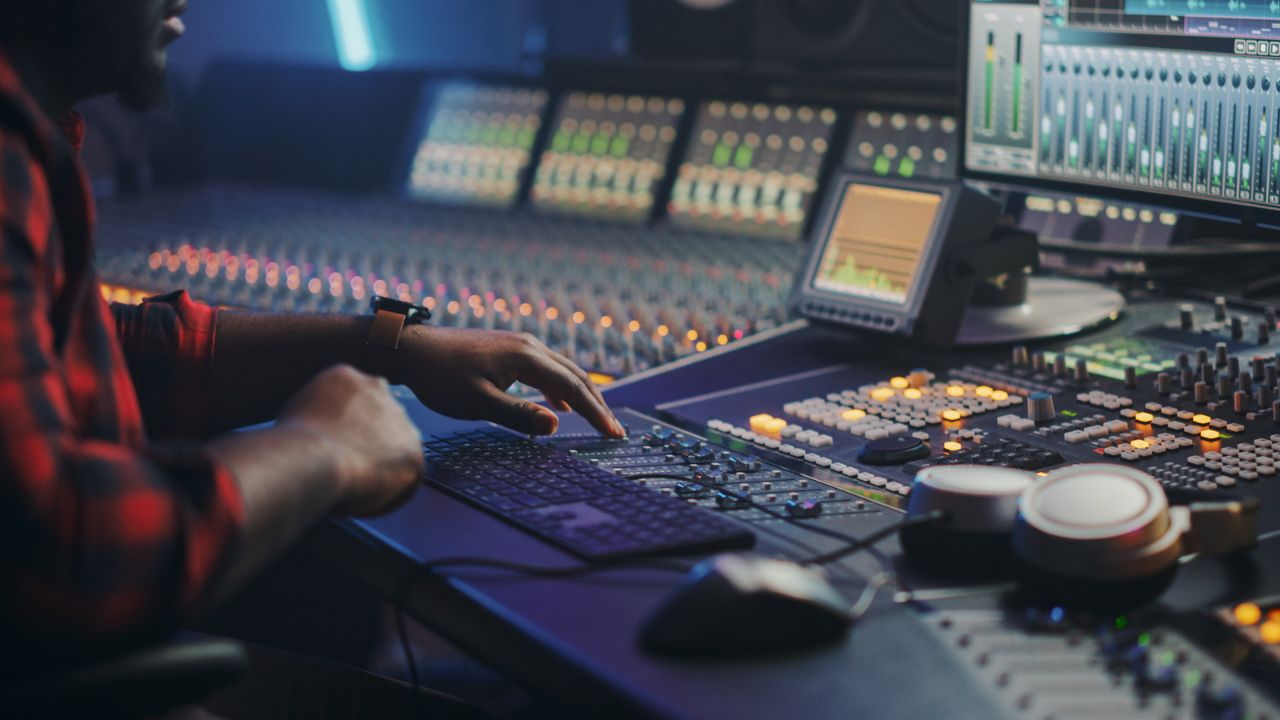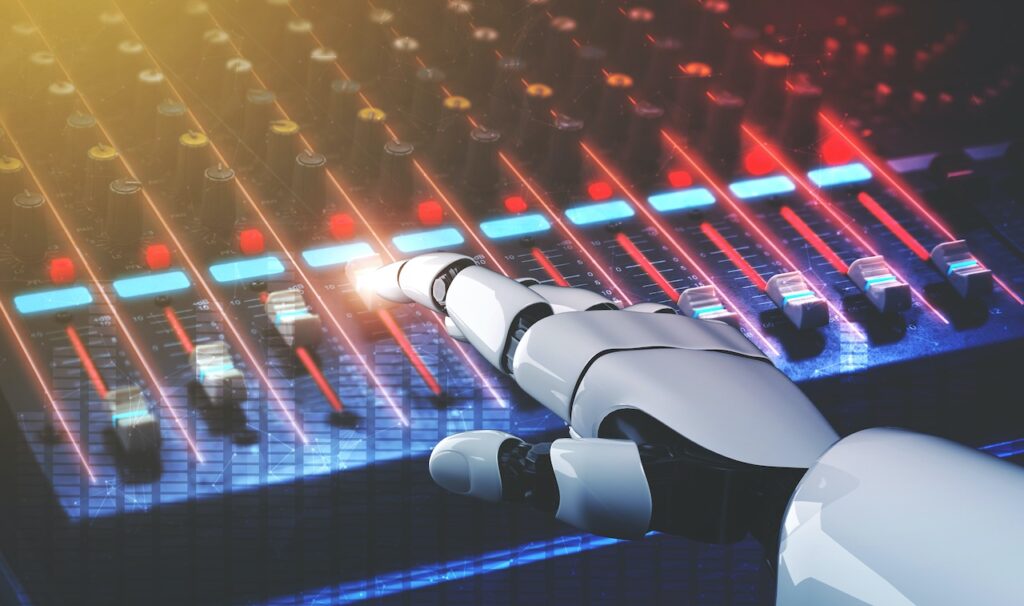While Hollywood screenwriters finally reach an agreement for one increased regulation of artificial intelligence technologies (AI), the world of music does not stand idly by. The battle is taking place on several fronts, and while Europe is in the midst of the debate onAI Act, it is in the United Kingdom that some interesting proposals are being put forward. This is certainly not surprising, given that the British music industrywhich has a significant impact on the economy of the entire country, aims to preserve its market.
In fact, in these very days, the Council of Music Makers (CMM) of the United Kingdom published five fundamental guidelines for companies wanting to develop artificial intelligence technologies for music.
What is the real problem with using AI in music?
There are many critical issues in the AI recording industry. When we talk about generative AI, we’re talking about one technology capable of generating content following a specific user request. There’s a problem though: AI doesn’t create from nothing, like a real artist would. Artificial intelligence, in fact, draws on a database of data, works, images, music and videos. The term is generally used trainingto indicate the volume of information that the AI assimilates to then process (or generate) its works.
Also try Amazon Music with 3 months of free use, cancel at any time
Let’s take a concrete example: if we ask the AI to generate a song in the style of the Beatles, the machine will analyze Fab4 songstrying to understand the writing style of the Lennon/McCartney duo, and will return similar content.
It therefore seems clear that the training process, without appropriate regulation, would allow the AI to exploit, without consent, material protected by copyright (in the case of our example it would use Beatles songs). The issue becomes even more critical if later that music generated is put on the marketallowing the user who used the AI to earn on the backs of whoever created that music.
The 5 guidelines for using artificial intelligence for music creation
Below we analyze the 5 guidelines promoted by the British CMM, with consequent parallelism, where there was any, with the proposals contained in theAI Act of European Union.
1) Informed and preventive consent: those who create music must authorize artificial intelligence
“When negotiating licensing agreements for AI technologies, you need to get the explicit consent from individual music creators before the music is used to train AI models“.
It is the apparently most banal rule, but also the most important one: the CMM wants it prevent artificial intelligence from learning from copyrighted content without explicit consent who owns the rights to the works.
2) The public image of the artist must be preserved
“The rights of publicity, personality and personal data of music creators must be respected. These rights belong to individual music authors and cannot be exploited – by AI companies or rights holders – without explicit consent. The UK Government should clarify and strengthen these rights and work together internationally to promote a robust global rights regime.”
The second rule concerns a broader scenario: the spread of fake works. In recent months we have reported several times about experiments by users who used artificial intelligence to create fake works by a variety of artists. A clear example is the AI cover of Yesterday, an iconic Beatles song, which the AI made Freddie Mercury sing. For the CMM, technology cannot exploit the name and personality of artists without the explicit consent of those who hold those image rights.
Let’s also give a concrete example here: if the AI has obtained consent to access the Queen catalog (respecting the first guideline above), it will also have to obtain consent from those who hold the rights to exploit the Queen brand to create a song which, from a promotional point of view, involves the use of the band’s name.
3) Financial recognition to rights holders
“Where permission is granted, music creators must share equally in the financial benefits of music AI, including with respect to music generated by AI models trained on their work”
In addition to explicit consent, all economic proceeds from musical works generated by artificial intelligence must be shared equally with whoever granted the rights.
4) The economic distribution must be agreed in advance
“When AI companies and rights holders develop licensing models, they must proactively consult with music producers and reach an agreement on how each interested party will share revenues from AI products and services.”
In requesting exploitation of the works, companies that train (or develop) the language models must stipulate an agreement that specifies the related economic divisions.
5) Music generated by artificial intelligence must be presented as such
”AI-generated works must be clearly labeled as such, and AI companies must be fully transparent about the music used to train their models, maintaining and making available complete records of the datasets. Rights holders must be transparent about all licensing agreements that have been negotiated with AI companies and what works those agreements include.”
The last point proposed by the CMM points consolidate the boundary between works created by real artists and music generated by artificial intelligence. The AI (and whoever uses it) will always have to specify whether the music in question was generated by artificial intelligence.
Here Amazon Music with 3 months of free use, cancel at any time
E in Europa?
On the European front, things are decidedly more complex. The famous AI Act, which is so much discussed, will have to go through the so-called trilogue. This means that the text must find approval on all points by all three key EU bodies: the European Parliament, the European Council and the European Commission. At the moment the three parties are working to find a common agreement by January 2024. If this were to happen, the AI Act would go into effect within the next two years.
Unlike the document presented by the CMM, the AI Act does not specifically refer to the recording industry, on the contrary. The EU aims to regulate the use of artificial intelligence in a broader framework, including everyday and commercial use cases. In essence, the copyright issue is just one of many analyzed.
The AI Act doesn’t seem to care too much about music
The only reference to copyright is present in the‘articolo 28b-5awhere the text states that companies must “document and make publicly available a summary of the use of training data protected by copyright law.”
A decidedly generic point, especially compared to the 5 CMM guidelines. Basically the AI Act is uncleargiven that there is no specific definition of what “document and make publicly available” means. Can AI use copyrighted works without permission? Is it only required to inform the public that it is using those works?
But that’s not all, there are other important critical issues. The most obvious of all is the territorial fragmentation of copyright. In the audiovisual world, rights are often managed by different entities or companies depending on the reference territories. The AI Act article does not resolve the issue, as an AI company could obtain training rights to a song in the US and allow European users to access that data.
In short, the road seems to be long and tortuous, just to mention a Beatles masterpiece.

















Leave a Reply
View Comments